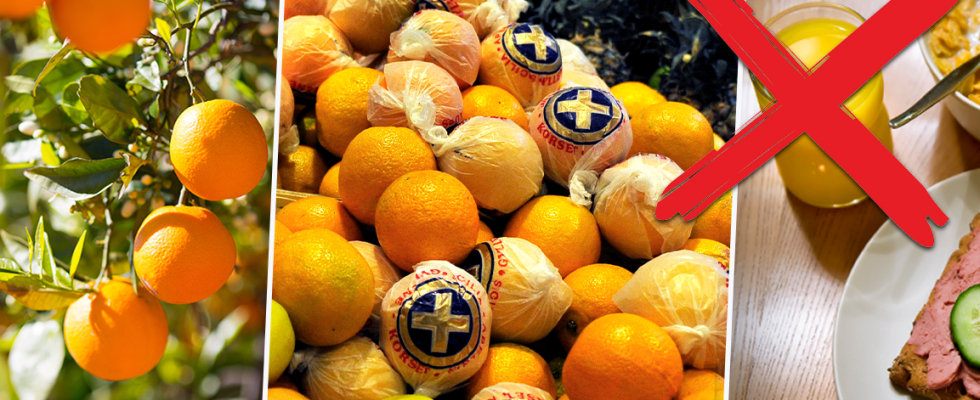Updated 22.02 | Published 19.51
unsaveSave
expand-left
full screen There is a shortage of oranges in the world. Archive image. Photo: Anders Wiklund/TT
Extreme weather and plant diseases hit the world’s citrus plants hard.
The price of oranges is already sky high – and soon they will be completely gone.
Now the experts are warning that the store’s juice shelves may soon be empty.
Citrus greening, or yellow dragon’s disease in Swedish, is a plant disease that kills citrus plants. Citrus greening is the main reason for the reduced production volumes of oranges that have caused prices to skyrocket.
The disease has increased dramatically lately, writes Livsmedelsföretagen in a press release. Something that can cause major problems for Swedish food companies that produce and sell orange juice.
“The shortage will unfortunately have a major impact on the availability of orange juice in stores,” says Magnus Berndtsson, chairman of the Swedish Juice Association and CEO of Eckes Granini Sweden.
Extreme weather
In orange-growing countries such as the USA, Spain and Brazil, extreme weather is a fact. Hurricanes, rain and drought affect the harvests negatively – and cause the yellow dragon’s sickness to increase.
expand-left
full screen Well-being of orange trees by the Mediterranean Sea. Archive image. Photo: Getty
There is still no cure for the disease.
For the juice companies, this means that they have to rearrange their production.
“There is a lot of innovation going on at the juice companies, where new drinks with other fruit and berry flavors are continuously launched in the trade,” says Magnus Berndtsson.
FACTS Citrus greening
Is an incurable bacterial disease that can be spread in orange plantations via two different insects.
Makes the fruits bitter and stop ripening. They become green, misshapen and unfit for sale.
Citrus trees affected by the disease usually die within a few years.
(Source: Food companies)
Read more
expand-left
full screen
